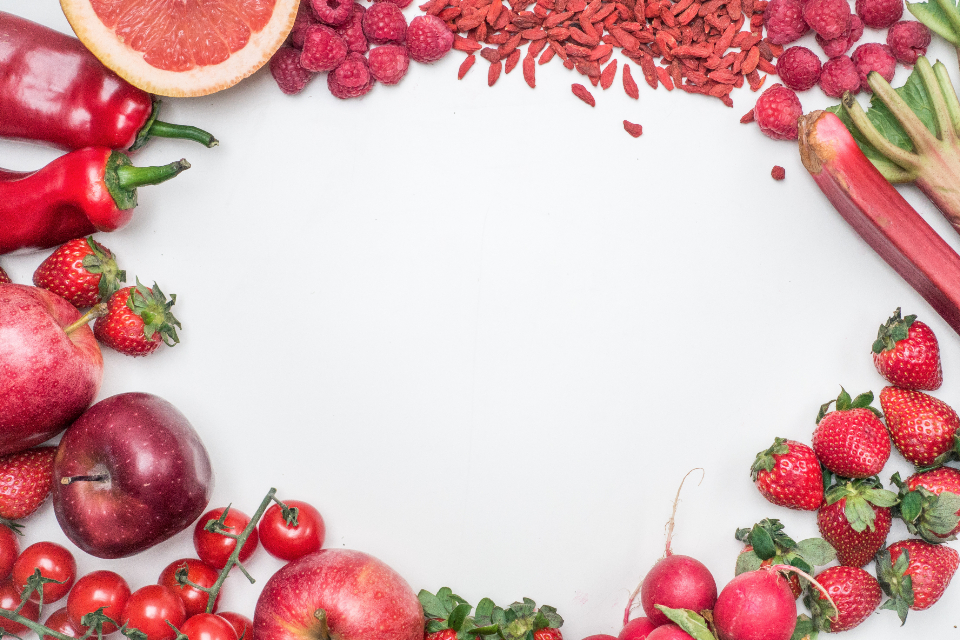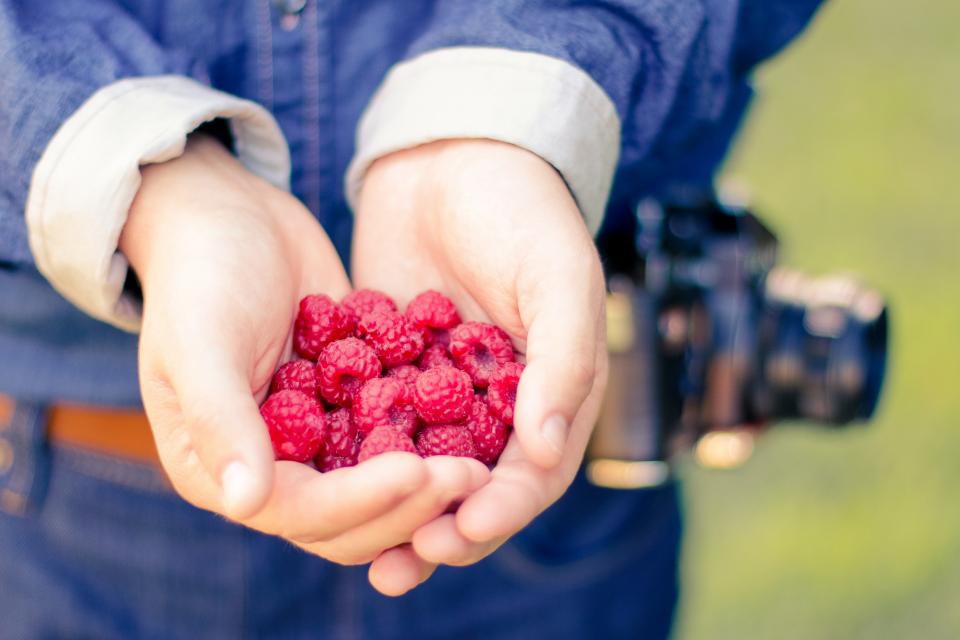This article delves into the world of canine snacking, exploring whether raspberries are a suitable treat for your furry friend. We'll examine the nutritional benefits and potential risks, providing a comprehensive guide to help you make informed decisions about your dog's diet. We will also address common questions and concerns regarding raspberry consumption by dogs.
Part 1: Are Raspberries Safe for Dogs?

1.1. The General Verdict
The good news is that raspberries are generally safe for dogs to eat in moderation. These juicy red berries are packed with antioxidants and vitamins, making them a potentially healthy treat. However, there are some key considerations to keep in mind.
1.2. Potential Risks and Cautions
- Seeds: While the fleshy part of the raspberry is safe, the tiny seeds can pose a choking hazard, especially for smaller breeds. It's crucial to remove any visible seeds before offering raspberries to your dog. For smaller dogs, it's best to mash the berries or remove the seeds entirely.
- Sugar Content: Raspberries contain natural sugars, which can contribute to weight gain if consumed in excess. Moderation is key, especially for dogs prone to obesity. A few raspberries as an occasional treat are generally fine, but avoid giving large quantities regularly.
- Allergic Reactions: Although rare, some dogs may be allergic to raspberries. Watch for signs of an allergic reaction, such as vomiting, diarrhoea, itching, or swelling. If you notice any of these symptoms, stop giving your dog raspberries and consult your veterinarian immediately.
Part 2: Nutritional Benefits of Raspberries for Dogs

2.1. Antioxidant Powerhouse
Raspberries are rich in antioxidants, which help protect cells from damage caused by free radicals. These powerful compounds may contribute to overall health and well-being, boosting the immune system and potentially reducing the risk of certain diseases.
2.2. Vitamin C Boost
Vitamin C is essential for a strong immune system, collagen production, and wound healing. Raspberries are a good source of this vital vitamin, although not as high as some other fruits like oranges.
2.3. Fibre for Digestive Health
Dietary fibre is crucial for healthy digestion, aiding in regular bowel movements and promoting a balanced gut microbiome. Raspberries provide a decent amount of fibre, which can be beneficial for dogs prone to constipation.
2.4. Mineral Content
Raspberries also contain small amounts of essential minerals like potassium, manganese, and magnesium, which contribute to various bodily functions.
Part 3: How to Feed Raspberries to Your Dog Safely

3.1. Start Small and Observe
Introduce raspberries to your dog gradually, starting with a tiny piece. Observe for any signs of adverse reactions before offering more. This cautious approach helps identify any potential sensitivities or allergies.
3.2. Choose Fresh or Frozen
Fresh raspberries are a delicious treat, but frozen raspberries can be a refreshing option, especially on warm days. Frozen raspberries can also be easier for dogs to chew, especially if they have dental issues.
3.3. Remove Seeds and Stems
Always remove any seeds, stems, or leaves before giving raspberries to your dog. These parts can pose choking hazards and are not digestible.
3.4. Moderate Consumption
Limit the amount of raspberries you give your dog to avoid potential digestive issues or weight gain. A few raspberries as a treat are generally acceptable, but consult your veterinarian for specific recommendations based on your dog's size, breed, and overall health.
3.5. Combine with Other Treats
You can incorporate raspberries into a mixed treat bowl for variety and added interest. Combine them with other dog-friendly fruits, vegetables, or even a small amount of cooked chicken or turkey.
Part 4: Alternatives to Raspberries
4.1. Other Dog-Friendly Berries
If your dog enjoys berries, there are other safe options to consider:
- Blueberries: Blueberries are a popular choice for dogs, offering similar nutritional benefits as raspberries.
- Strawberries (in moderation due to higher sugar content): Strawberries are a tasty treat, but their higher sugar content should be considered.
- Blackberries: Blackberries are another good option, providing fibre and antioxidants.
4.2. Other Healthy Treats
A variety of healthy treats can supplement your dog's diet, such as:
- Cooked chicken or beef (without bones): A good source of protein and essential nutrients.
- Carrots: Crunchy and low in calories, carrots are an excellent choice for dental health.
- Apples (without seeds): Apples offer fibre and vitamins, but the seeds are toxic to dogs.
- Pumpkin (cooked and pureed): Pumpkin is rich in fibre and beneficial for digestion.
Part 5: Signs of Raspberry Toxicity
Although raspberries are generally safe, it's important to recognise potential signs of toxicity. If you suspect your dog has eaten a large amount of raspberries or is exhibiting unusual symptoms, seek immediate veterinary attention.
5.1. Common Symptoms
- Vomiting: A common symptom of digestive upset.
- Diarrhoea: May indicate an imbalance in the digestive system.
- Abdominal pain: Could be a sign of irritation or discomfort in the stomach.
- Lethargy: A decrease in energy levels may indicate illness.
- Loss of appetite: A lack of interest in food can be a concerning symptom.
- Excessive drooling: Excessive salivation may indicate discomfort or irritation in the mouth.
- Swelling: Swelling around the mouth or face could be a sign of an allergic reaction.
Part 6: FAQs about Raspberries and Dogs
6.1. Can Puppies Eat Raspberries?
Puppies can generally eat raspberries, but it's essential to exercise extra caution. Ensure you remove all seeds and stems, and offer only small amounts. It's always best to consult with your veterinarian before introducing new foods to your puppy's diet.
6.2. Can Senior Dogs Eat Raspberries?
Senior dogs can enjoy raspberries in moderation, but their digestive systems may be more sensitive. Pay close attention to their reactions and adjust the amount accordingly.
6.3. Are Raspberries Good for Weight Loss?
While raspberries are relatively low in calories, they are not a magic bullet for weight loss. A balanced diet and regular exercise are key to maintaining a healthy weight.
6.4. Can I Give My Dog Raspberry Seeds?
Raspberry seeds can be a choking hazard, especially for smaller dogs. It's always best to remove seeds before giving raspberries to your dog.
6.5. Are Raspberries Good for My Dog's Coat?
The antioxidants in raspberries may contribute to a healthy coat, but they are not a primary source of nutrients for healthy fur. A balanced diet with appropriate protein and fatty acids is essential for a shiny coat.
6.6. How Often Can I Give My Dog Raspberries?
There's no strict rule on how often you can give raspberries to your dog. However, it's best to offer them as an occasional treat rather than a regular part of their diet. Consult your veterinarian for specific recommendations based on your dog's individual needs.
6.7. Can Raspberries Cause Diarrhea in Dogs?
While raspberries are generally safe, they can cause diarrhoea in dogs if consumed in large quantities. This is due to the high fibre content, which can be difficult for some dogs to digest. Moderation is key to avoid this issue.
6.8. Are Raspberries a Good Source of Vitamins for Dogs?
Raspberries are a good source of Vitamin C, but they are not a primary source of all essential vitamins for dogs. A balanced diet with commercially formulated dog food should provide all the necessary nutrients.
Everyone is watching
-

Can Dogs Eat Bananas? A Guide to Safe Treats
DOGS & PUPPIESThis comprehensive guide will delve into the world of canine nutrition, focusing on the popular question: can ...
-

Can Dogs Eat Oranges? (Is It Safe or Toxic?)
DOGS & PUPPIESThis article delves into the question of whether dogs can safely consume oranges. We'll explore the nutrition...
-

Can Dogs Eat Grapes? The Shocking Truth About This Fruit
DOGS & PUPPIESThis article delves into the controversial topic of grapes and dogs, exploring the potential dangers associate...
-

Why Do Dogs Eat Poop? Understanding Coprophagia in Dogs
DOGS & PUPPIESThis article delves into the perplexing phenomenon of coprophagia, the act of eating faeces, in dogs. We explo...
-

Can Dogs Eat Shrimp? A Guide to Safety and Risks
DOGS & PUPPIESThis comprehensive guide dives into the world of shrimp and dogs, exploring the potential benefits and risks a...
